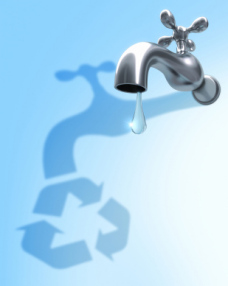Don’t send $$$ down the drain: Water conservation saves money and resources
[ Originally published in MyVU]
 In today’s economic climate, every little bit of savings helps. Plant Operations, VUMC Plant Services and SustainVU have been working for more than a year to find new and better ways to save water through the Campus Water Conservation Project. Not only does conserving water preserve a valuable resource and lessen our environmental impact, it has saved the university thousands of dollars each year.
In today’s economic climate, every little bit of savings helps. Plant Operations, VUMC Plant Services and SustainVU have been working for more than a year to find new and better ways to save water through the Campus Water Conservation Project. Not only does conserving water preserve a valuable resource and lessen our environmental impact, it has saved the university thousands of dollars each year.
In addition to the water conservation features already inherent in the newly-constructed Commons campus, VU Plant Operations and VUMC Plant Services have been systematically retrofitting restrooms throughout the institution. Almost 1,500 low-flow faucets, low-flow toilets and water-free urinals have been installed so far. These projects have resulted in estimated annual savings of $250,000 and approximately 37 million gallons of water a year (That’s enough water to fill more than 1.2 million bath tubs or cover four football fields 30 feet deep).
Plant Operations has also pursued a unique and creative water-saving opportunity by reclaiming and using millions of gallons of groundwater that collects in the web of utility tunnels buried beneath campus.
This non-potable (non-drinkable) water is used to irrigate the athletic fields and in the on-campus cogeneration power plant cooling towers. By capturing this water and redirecting it, Vanderbilt is reducing water purchases from Metro Water and sewer by an additional 50 million gallons a year.
Together, these projects are resulting in reduced water consumption at Vanderbilt by an estimated 87 million gallons of water per year, and saving more than $250,000 in water and sewer costs.
To do your part to save water, consider:
- Turning off the water when it is not in use;
- Reporting and repairing water leaks, broken toilets, and dripping faucets. On campus, contact Plant Operations (4-WORK); in the medical center, contact Plant Services (2-2041);
- Washing full, rather than partial, loads of labware, dishes, or clothes;
- Taking efficient showers and installing low-flow showerheads at home;
- Turning off the water when brushing your teeth and installing low-flow aerators on faucets at home;
- Install a rain barrel at home to use rainwater for yard and garden irrigation; a low-cost rain barrel, Systern, can be purchased from Metro Water and Sewer department.
Contact: SustainVU

Leave a Response